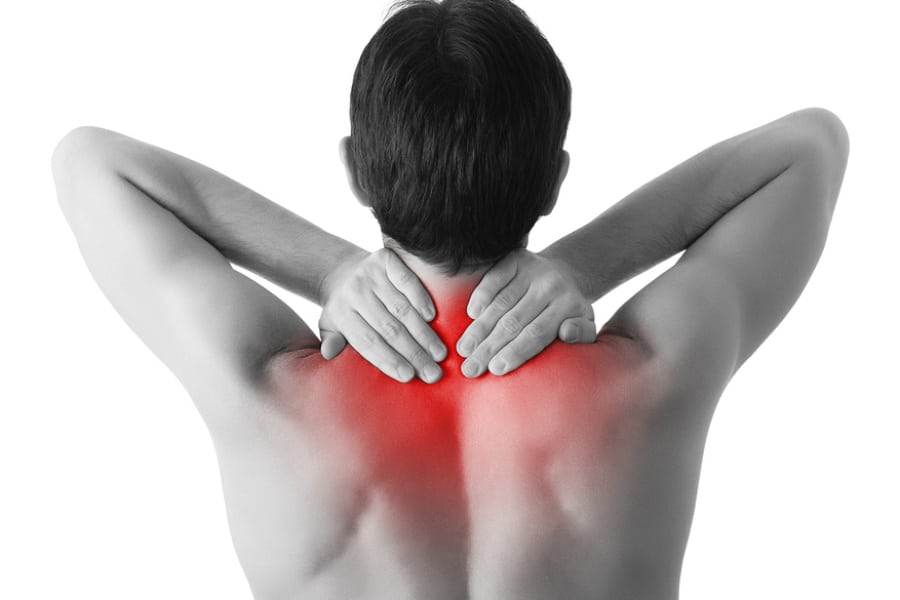The solution to a problem usually starts with identifying its causes. In back and neck pain, having knowledge about human spine anatomy is an advantage. This is because the most common causes of pain originate from this part of our body. To help people with their spine-related problems, we have listed some of the common causes of back and neck pain.
Causes of Back Pain
One of the main reasons why it could be difficult to find out the causes of back pain is that the back is made up of joints, nerves, muscles and bones, which means that the problem could originate from any of these.
Back pain is commonly caused by minor injuries, strains and sprains, and not by some serious disease or damage. These minor causes could develop due to certain daily activities of an individual. This can gradually develop without you noticing it, or it can manifest without a warning. The following movements or activities can result to back pain:
- Overstretching
- Slouching
- Carrying and lifting heavy objects
- Bending for long periods
- Sitting in a hunched position
- Overusing the muscles
- Repetitive movements
Read more: 5 Ways to Lessen Your Back Pain
In certain cases, the back pain may be due to a medical condition. The pain is not in itself the problem, but a symptom of a deeper, bigger problem. The following are some of the specific conditions why you are suffering from back pain:
Get Back Your Normal Life Again
As pain specialists, we can guarantee that we are more than qualified in alleviating your pain and treating your condition.
- Slipped or prolapsed disc or sciatica: This usually manifests as a pain in the lower back, accompanied by a tingling sensation and numbness that can radiate down to your legs.
- Arthritis: One of the symptoms of this condition is joint pain, which usually occurs in the morning or while walking. This is usually associated with stiffness in the affected area.
- Frozen shoulder: The symptom of this condition is pain and stiffness in the shoulder, which can also affect the upper back.
- Whiplash: This happens if the pain symptoms occur after going through an accident. This is usually accompanied by neck pain, headache and stiffness.
- Spine infection and spinal fracture: This is a back pain cause in rare cases, especially if the symptom persists and comes with the other signs of the specific condition.
The best way to determine the causes of back and neck pain, particularly if you think that it could be something serious, is to consult a pain professional or a physician.
Causes of Neck Pain
The neck may be a relatively smaller structure than the back, but it can still be difficult to determine the causes of neck pain. The causes can be a pretty minor one or something serious. The following are just the most common reasons why you are suffering from pain in said area.
- Muscle Strain
This is the most common cause of neck pain. This is because the levator scapula muscle is highly susceptible to injury. This usually manifests as a “stiff neck.” The pain can radiate from the neck down to the shoulders.
- Degeneration
This is commonly known as “wear and tear” and medically called “cervical spondylosis.” Neck pain occurs when there is wear and tear in the vertebrae and the discs in between them. The pain can be persistent and recurring, particularly in older people. There are certain cases, though, that people with such conditions don’t suffer from neck pain.
- Cervical Radiculopathy
This occurs when the roof of the nerves in the spinal area in the neck are damaged or pressed on. The pain feels like pins and needles. It is usually associated with weakness in the arm and numbness in the affected area. The pain in the neck is just the manifestation of the symptoms.
There most common causes of cervical radiculpathy are prolapsed disc and spondylosis. In rare cases, it could be due to minor causes.
- Cervical Spinal Disorders
Neck stiffness or pain can also result from certain cervical disorders. It can be a manifestation of an underlying disorder, which could be serious or not, such as the following: cervical herniated disc, cervical degenerative disc disease, bone spurs, spinal stenosis and cervical osteoarthritis.
- Meningitis or Other Infection
This may not be very common, but some neck stiffness can potentially be caused by meningitis or other infection. The neck pain usually comes with cases of vomiting, nausea, headache and high fever. If these symptoms are associated with sleepiness, it could be a sign of a bacterial infection called “meningitis.” Aside from meningitis, the neck pain and stiffness may be due to other infections such as meningococcal disease. Seek immediate medical help if you are suffering from such symptoms.
- Serious Conditions
In rare instances, the pain can be due to more serious causes such as cancer, serious neck injuries, bone disorders or rheumatoid arthritis.
The above-mentioned causes of back and neck pain may not cover all the possibilities. But they can be very helpful in pinpointing the treatment as early and efficiently as possible. However, it is still best if you consult professionals to get the appropriate medical attention that you deserve.

